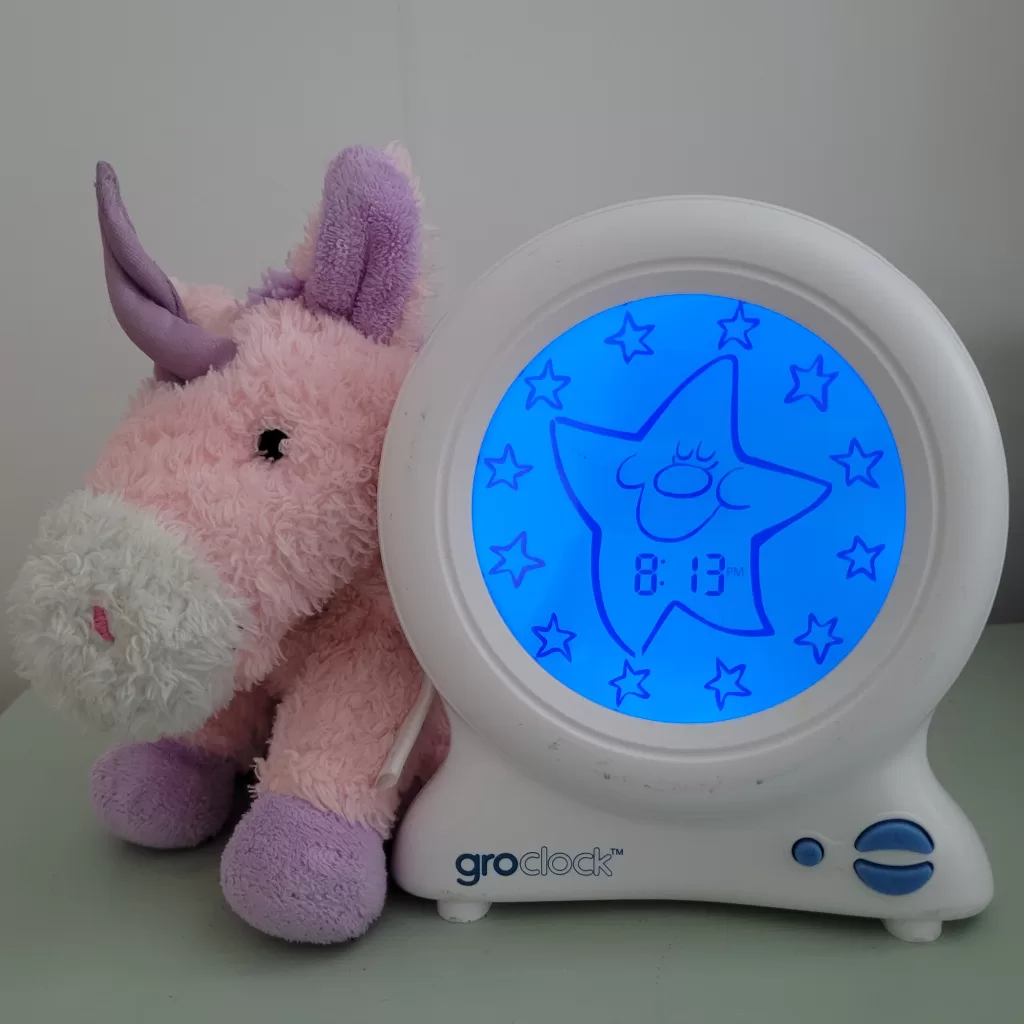How to help your kid sleep better in 10 steps
Is your child struggling to fall asleep? Are bedtimes stressful and frustrating? If so, you are not alone. That was me for years. I have tried many different things in an effort to help make bedtimes more relaxed and peaceful for my family. If you’re looking for ideas to help your kid sleep, you are in the right place.
I hope by sharing some of these ideas, you will be able to create a happier bedtime for your family too.
Sleep is a challenge for many families, especially those with young children.
It requires a certain level of patience as the child lies still and waits quietly in bed to drop off. They also need to be secure in the knowledge that you are still ‘there’ if they need you, and that they will see you again in the morning.
As your child gets older, bedtime can often become a time when their heads are filled with reflections and memories of their day. Sometimes these can stop them sleeping. Excitement over the coming day can make sleep trickier and night terrors can be a big issue for some children too.
Related Posts

This post may contain affiliate links, which means I’ll receive a commission if you purchase through my links, at no extra cost to you. Please read full disclosure for more information.
Worries can hinder sleep
Children can struggle to sleep due to worries that pop into their head right at bedtime.
Most of us have been there ourselves. We finally get to lay our heads on our pillow and suddenly all the worries of the day appear and stress us out so we can’t sleep. Our little people are just the same.
I have found it helps to pre-empt this by making time to talk about our day at dinner. We each share something good about the day and something bad. It opens up the conversation and gives us a starting point.
Of course, mealtimes might not be the best time for you to do this, and if your child is older or not comfortable sharing worries with the whole family, then choose another time.
Depending on the age of your child, it might help to write out worries, then scrunch them up and throw them away once discussed. I find its best to have these conversations at least an hour before bed so it’s off their chests in plenty of time.
Once in bed, I like to have a little chat with my kids just before lights out. I try to fill their heads with happy thoughts. This could be something they have to look forward to the next day, although we have to tread carefully with this one, as anything too exciting can stop mine from sleeping!
I talk about the fun activities we have done that day or remind them of a time someone was kind to them. I choose anything that I think will help them feel loved, valued and cared for. It helps to paint a picture for them to hold onto as they wait for sleep to arrive.
Limiting screen time can help your kid sleep
Cutting out screen time before bed can make a real difference.
Research shows that looking at a screen before bed makes it harder to get to sleep. This applies to all screens, including phones, iPad’s, and the TV.
Cut out screen time for at least an hour before bedtime and this should help your little one drop off quicker.
Explain the importance of sleep
Sleep is important. We know this, but do our children? And I mean, do they really know it?
I have found that it is worth picking a time, that is not bedtime, to learn together about sleep and it’s value. Read stories together about sleep, watch science videos on YouTube, or look into studies done on sleep. It will depend on the age of your child as to whether they look at studies with you or you paraphrase for them.
The basic message, of course, is that our bodies need sleep. It keeps us healthy and gives us energy.
If my child is really struggling to sleep then I have also found that explaining rest to them is helpful. I explain that time resting, while we wait to fall asleep, is not wasted. Our body can use that rest time too.
Involve your child in planning a routine
Getting your child involved in creating their own bedtime plan can really help.
My son loved drawing pictures for his plan and then bluetac’d it to his bedroom door proudly. I started by asking him what he thought would help him to sleep and tried to accommodate that, within reason!
Once it’s written, put it somewhere visible so they can lead at bedtime. Instead of telling my son what he needed to do next, I asked him what was next on his list. Taking ownership and feeling a little power and responsibility over his bedtime, really helped avoid those power struggles.
A consistent routine can help your kid sleep better
We all know it, but often forget in the hustle of everyday. Kids thrive on consistency. A consistent, predictable routine at bedtime goes a long way in helping them settle.
It gives security and predictability, which helps them to relax easier. Once you find a bedtime routine that both you and your child are happy with, try to stick to it as much as possible.
Sticking with the same time for bed is important too. Now, I’m not going to go as far as to suggest that you never let them have a late night. (However, if this is your choice I fully respect that too!)
This is just a gentle reminder that some kids manage better with the odd break in routine, better than others.
If your child does have a late night as a treat, be prepared that it may just throw their bedtime routine for a bit. It could even take a week or two to get them back to their normal sleeping pattern. So, as always, do what’s best for you and your family.
We prioritise family holidays and the occasional family ceilidh dance or evening wedding party. However, we chose not to have our kids stay up late for Christmas, New Year, birthdays or anything else. For our family, it’s just not worth it.
Every family is different and will have different priorities, and every child is different and manages inconsistency differently.
Consider bedtime comfort
A big part of the bedtime routine for our little ones, is getting everything ‘just so’ in their beds.
My son likes the duvet cover tucked under the mattress at the bottom, his pj’s tucked into his socks, and his favourite cuddly toy. My daughter likes to be in her sleeping bag, with a blanket tucked in on 3 sides, and her two unicorns. She sleeps in fleecy PJ’s and my son sleeps in cotton. This is what they need to feel cosy and comfortable at bedtime.
For your child, it may be a hot water bottle, comfort blanket, character PJ’s, a special teddy bear, or some water by their bed.
It may seem a bit silly, or like pandering to them, but it all helps. It is all part of the same consistent routine that tells their brains it is time to sleep now.
Lighting can help your kid sleep better
Lighting is another little thing to consider. We all need different lighting conditions to sleep.
My daughter goes to sleep with the lights out and bedroom door shut so it’s pitch black. She takes ages to sleep if the door is left ajar. My son panics if the door is pulled ajar and needs it wide open with the little bathroom light across the hall on. They are all different, as are we!
Some children like a nightlight, or a light that projects patterns onto the ceiling, to help them sleep. Whatever you choose, if they want a light, aim for something that is soft, soothing and reassuring. Harvard Medical School recommends using a nightlight with a dim red light instead of a blue one, as it less likely to hinder sleep.
We have found that our Gro-Clock, from Amazon, really helps our daughter get to sleep, as it is a soft light that turns to yellow when it’s morning. This helps her know to stay in her bed and try to sleep if she wakes in the night, rather than coming through to ask.

Consider Auditory input
Many children find that listening to soothing music or audio books can help them fall asleep.
My son enjoyed listening to the Julia Donaldson CD Boxset Collection, from Amazon, when he was younger.
When my daughter was really struggling to sleep we tried audio books, but they sometimes worried her depending on the voice or story. I tried recording myself on an old phone, reading her favourite stories and we played this at lights out time. She absolutely loved it and started falling asleep in 5 minutes instead of taking almost an hour.
Every child is different and their preferences will change as they grow.
Your Presence can help
Sometimes our kids just need our presence to help them fall asleep. This looks different for every family. It is about finding the balance between what your child needs and what you can manage as a family.
This could be as simple as reassuring them that you are down the hall in the living room, or leaving their bedroom door ajar. It could be a special teddy that you hug for them before bed, or a recently worn t-shirt of yours that smells of you. They may need you to sit outside their bedroom door, or perhaps even by their bed.
I still remember the year our son needed us to sit and stroke his hair for over an hour, until he dropped off to sleep. It was hard going for us, but it was a season.
If you are on the heavy end of the scale and you are longing for your evenings back, remember it doesn’t last forever. I reminded myself countless times that my boy would not still want his mummy stroking his hair at bedtime when he was a teenager! He now drops off to sleep by himself, with the door open ajar and the bathroom light on. He does sleep in our bedroom though! Our daughter, however, who is 2 years younger (age 4) happily goes to sleep on her own, in her own room, with the door shut and no light at all.
All kids are different and all seasons are different. Our son used to be the same as our daughter when he was her age. Anxiety triggered his sleep relapse.
Basically, with kids, bear in mind that everything is just for a season! If it’s hard right now, it will get easier.
Tried everything to help your kid sleep?
I really hope that something you’ve just read will help your kid sleep better.
Creating a calmer, happier bedtime routine for your child and yourself is not a quick fix.
You may need to try a combination of all the above, for a week or two, to see a change.
However, if your kid is still struggling to sleep, then it’s worth speaking to your GP for other options.
Sleep is, in my opinion, one of the biggest challenges of parenting, but it honestly does get easier in time. You’ve got this!
Related Posts

